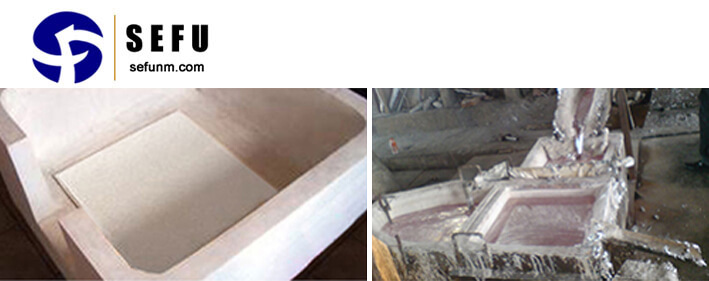In the intricate world of aluminum alloy production, filtering molten aluminum is a critical step that directly impacts the quality, purity, and integrity of the final products. One of the key players in this process is the alumina ceramic foam filter, a champion in the realm of filtration technology.
The Importance of Filtration in Aluminum Alloy Production
Filtration in aluminum alloy production serves multiple crucial purposes. Firstly, it helps in removing impurities, such as oxides, non-metallic inclusions, and other contaminants, that can compromise the mechanical properties and surface quality of the alloy. By employing alumina ceramic foam filters, manufacturers can achieve a cleaner and purer molten metal, leading to superior casting results.
Criteria for Selecting Filtration Systems
When selecting filtration systems for aluminum alloy production, several factors come into play. Efficiency, thermal stability, compatibility with the specific alloy composition, pore size, and the ability to withstand high temperatures are among the key considerations. Alumina ceramic foam filters excel in meeting these criteria, offering exceptional filtration performance and durability.
Impact of Filtration on Aluminum Alloy Product Quality
Filtration plays a pivotal role in enhancing the quality of aluminum alloy products. By effectively removing impurities, alumina ceramic foam filters contribute to improved mechanical properties, reduced defects, and enhanced surface finish of the castings. This results in products that meet stringent quality standards and customer expectations.
Influence of Filtration on Production Efficiency
Efficient filtration processes lead to increased production efficiency in aluminum alloy manufacturing. By ensuring a clean and homogeneous molten metal, alumina ceramic foam filters minimize the need for rework, reduce scrap rates, and enhance workflow consistency. This results in streamlined operations and optimized production timelines.
Differentiation in Filter Requirements for Various Aluminum Alloy Types
Different types of aluminum alloys may require specific filtration approaches based on their unique compositions and characteristics. While some alloys may benefit from finer filtration to address specific impurities, others may necessitate filters with different pore sizes or configurations to achieve optimal results. Tailoring filtration solutions to suit the alloy type is essential for maximizing production outcomes.
In conclusion, the utilization of alumina ceramic foam filters in aluminum alloy production is not merely a choice but a necessity for achieving superior product quality, operational efficiency, and industry-leading standards. By prioritizing effective filtration practices, manufacturers can elevate their processes, ensure consistent product excellence, and meet the evolving demands of the aluminum alloy market.
For premium alumina ceramic foam filters and expert filtration solutions tailored to your aluminum alloy production needs, trust in industry producer SF-Foundry Filtration Technologies. Visit our website today to explore our comprehensive filtration offerings and enhance your casting operations.


